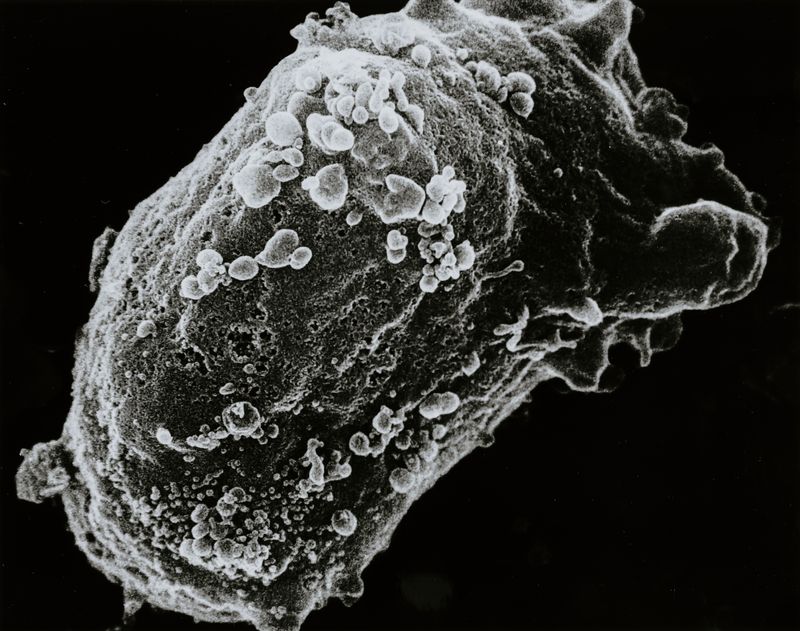Intimate relationships — trusted, healthy, and safe ones with true emotional and physical intimacy — can be wonderful to experience.
Sexual health is a prime part of your life. If you're a sexually active young adult, you need to maintain and take care of your sexual health in order to maintain a strong immune system.
Although sex education is considered a taboo in many communities, you can lead a more confident, happier, and healthier life by being well-informed and careful about STIs (sexually transmitted diseases).
 Photo by CDC on Unsplash
Photo by CDC on UnsplashSTIs are the type of infections that can pass from one partner to another during sex through multiple ways. STIs aren't restricted to vaginal intercourse — they can also infect a person through sexual activities like oral sex or rubbing the penis against a partner's genitals.
Did you know?
Do STIs impact women and men differently?
 STIs are not gender or age-specific. If you're sexually active, and not practicing safe sex, you could be at risk of getting infected.
STIs are not gender or age-specific. If you're sexually active, and not practicing safe sex, you could be at risk of getting infected.
However, research shows that women are more susceptible to contracting STIs, as a man's penis is likely to penetrate a woman's body during sex through her vagina, mouth, or anus. This means that an infection present in the man's semen can then enter into a woman's body and stay there.
If a woman gets pregnant, the chances of the infection traveling to her womb, ovaries, and fallopian tubes are high. A pregnant woman with an STI can transfer the infection to her child even before the actual birth.
 Moreover, since women in many societies have relatively less say in sexual activities compared to men, it's harder for women to protect themselves from getting infected.
Moreover, since women in many societies have relatively less say in sexual activities compared to men, it's harder for women to protect themselves from getting infected.
Often, a woman is forced into involuntary sex with her partner whenever he demands it. Therefore, if the partner has already been infected or has more than one sex partner, he may easily infect his partner.
Quiz
Farah and Hasan have been dating for two months. Sometimes they have sex. Farah suspects that Hasan is having sex with other partners, but isn’t sure. What should Farah do?
How do I know if I'm infected with an STI?
 Many STIs go unnoticed for months, while others can exhibit some obvious symptoms or signs that makes their identification easier. That's why you should always trust your instinct about your body and keep your personal hygiene a priority.
Many STIs go unnoticed for months, while others can exhibit some obvious symptoms or signs that makes their identification easier. That's why you should always trust your instinct about your body and keep your personal hygiene a priority.
You may have a possible STI infection if you experience one or multiple symptoms:
Pain and itching near your genitals
Sores or blisters near your genitals
A bad smell or an unusual vaginal discharge
Sharp pain during sex
 Photo by Testalize.me on Unsplash
Photo by Testalize.me on UnsplashYou could also be vulnerable to STIs if:
You practice sex with more than one partner
You change your sexual partners very often
Your intimate partner exhibits any signs of an STI
This is why getting tested on a regular basis at a clinic nearby is important.
What are common STIs?
 Some common STIs that you can look out for include:
Some common STIs that you can look out for include:
Warts — These are rough skin-colored bumps on the genitals caused by a virus that can be inside the penis or vagina. The bumps might not always be visible on a partner
Genital herpes — You can get sores on the genitals or mouth that come and go. You may also experience itching on the genital area or the thighs, with small blisters that may often burst.
Syphilis — This can cause body rashes on the palms of the hands or soles of the feet. It's a serious STI caused by bacteria that calls urgently for medication.
Gonorrhea — This causes a pus-like discharge, uncomfortable bowel problems, and bleeding from the penis or vagina. This is a serious STI but curable if treated quickly.
Chlamydia — This disease is caused by bacteria and may sometimes cause genital pain and discharge from the vagina or penis, but often leads to no symptoms.
 Photo by National Cancer Institute on Unsplash
Photo by National Cancer Institute on Unsplash
HIV — This virus, if not caught early, can develop into AIDS. Infected people can experience fever, aches, swollen lymph nodes, and diarrhea. HIV usually spreads through the semen or blood of an infected person. People with HIV may look completely healthy, so make sure to practice safe sex or get tested for HIV.
Hepatitis B — This liver infection can cause fever, fatigue, changed stool color, and loss of appetite. The virus can harm the liver thus, prompt medication is advised.
Trichomoniasis — This parasite can cause foul-smelling discharge, a red itchy genital area, and a burning sensation while urinating.
Did you know?
Subscribe for more quick bites of learning delivered to your inbox.
Unsubscribe anytime. No spam. 🙂
How can I prevent STIs?
Having informed and safer sex is the answer.
Always use a condom when you have sex. There is a wide variety of condoms available online. Latex condoms in particular provide considerable protection against HIV and other STIs. Other safety methods can provide some protection against STIs. Using a diaphragm can protect you especially from gonorrhea and chlamydia.
 Photo by Priscilla Du Preez on Unsplash
Photo by Priscilla Du Preez on UnsplashIn case your partner refuses to put on a condom, talk to them about the health risks you both will be putting yourselves in by not wearing a condom or taking necessary precautionary measures. This might not be the easiest or the sexiest conversation but it will protect you long-term.
Why is it so important to get tested?
 Photo by Testalize.me on Unsplash
Photo by Testalize.me on UnsplashSince getting infected with an STI is a serious health concern, make sure that you and your partner seek treatment as soon as you detect any signs. Treatment at an early stage will prevent the infection from causing more harm.
If infections are left untreated for a long time, they can lead to:
Infertility problems in both men and women
Health problems in babies such as blindness, prematurity, and/or disabilities
Cervical cancer in women
Take Action

In many developing countries, protection and testing services for STIs aren't widely available. There may also be several taboos around getting a test done or using protection. However, it's your right to keep yourself safe, so don't be discouraged!
Your feedback matters to us.
This Byte helped me better understand the topic.
